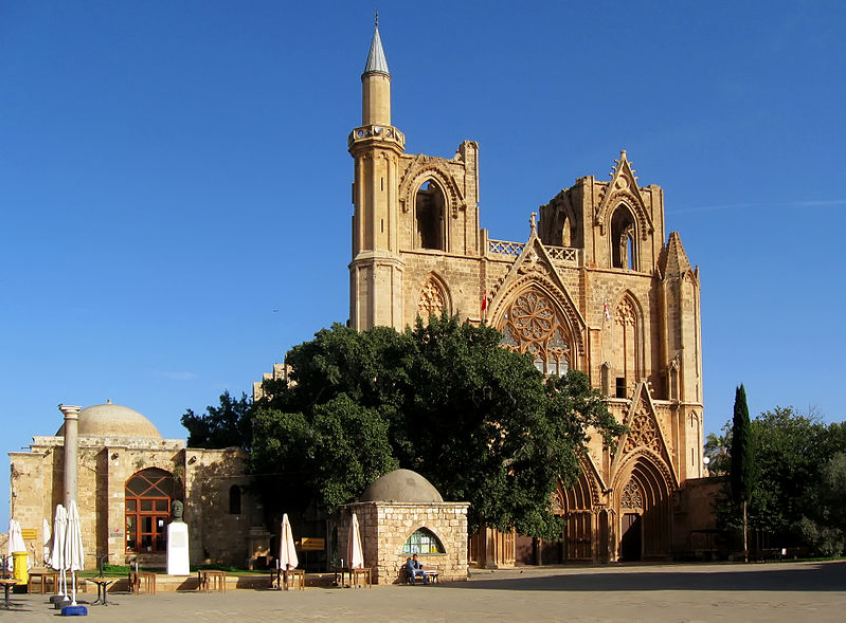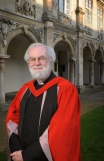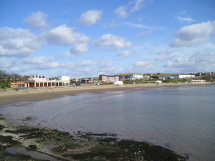
A Church of Scotland minister has spoken of the backlash he suffered when he opened his church for Muslim Friday prayers after the local mosque was firebombed.
Rev Ian Taylor opened his Bishopbriggs church after the local Islamic centre was badly damaged in the attack last November. But a parishioner reported him to his local presbytery, a colleague criticised him and he was targeted online from the US.
It's not the only time ministers have been criticised for offering their churches for Muslim use.
Last March the vicar of St John's church, Waterloo, was forced to apologise for an inter-faith worship event. Giles Goddard opened his church for Muslim prayers but was told by the Bishop of Southwark he had infringed Church of England guidelines. He said: "I remain committed to finding ways for Christians and Muslims to acknowledge our shared heritage and history, without minimising the uniqueness of both our traditions."
The two situations are very different, as we'll see. But should Christian churches ever be used for Muslim prayers?
How Muslims and Christians relate to each other is a very vexed question at the moment. In the US, Wheaton College got into a terrible tangle over the Larycia Hawkins case, in which the college didn't seem to know how to handle a professor who said Christians and Muslims "worship the same God".
And, of course, the issue's complicated by the present geopolitical situation in which Middle Eastern Muslims are targeting Christians for expulsion and massacre (though most victims have been other Muslims).
The narrative is that Muslims are the the enemy. Letting them pray in our churches is conceding defeat.
It's easy to understand this – and to sympathise. I belong to a Christian tradition that doesn't have the idea of a 'consecrated' space in the way that others do, like the Church of England. Baptists realise buildings are important and try to get the architecture right, but there's nothing essentially sacred about them. The Church is the people, not the building; we have no theological grounds for believing our chapels are somehow polluted if they're used by another faith.
And yet, and yet... I remember going to Famagusta in Cyprus a few years ago and visiting the Lala Mustafa Pasha Mosque. What's unusual about this mosque is that it was originally the Cathedral of St Nicholas, built between 1298 and 1312 in the Gothic style. From the outside you wouldn't know it wasn't still a Christian church, apart from a little minaret on top of one of the towers. It was converted when the Ottomans captured the city in 1571.
Inside it's all Islamic; the stained glass, the altar, the frescoes have all be removed or plastered over. There are a few tombs, but they're covered because of the Muslim prohibition of effigies.
I was surprised at my reaction. After nearly 450 years, it still felt like a defeat.
Whether it's justifiable theologically or not – and honestly, Muslims are welcome to their Famagusta mosque – there's a sense of territory about church buildings that we have to acknowledge. And when the question of allowing them to be used by other faiths comes up, it's this sense of territory that we have to critique.
It would be easy to take a liberal line and say territory doesn't matter. We should be knocking down walls, not building them up. Shared space is good, because it brings people together. It doesn't matter who worships in our buildings; as long as it's spiritual, that's fine.
But this doesn't work. Our church buildings are our spiritual homes. We put time, effort and money into them. We encounter God there and we experience fellowship with other believers. Opening our homes to other people might be nice occasionally, but they are ours – and implying we have no special interest or rights in them and that other people can use them as freely as we can runs counter to every instinct we have.
Furthermore, it's absolutely right to worry about what routinely opening our churches to other faiths might say about our commitment to our own. Our buildings aren't devoted to religion, or to spirituality; they are devoted to the worship of the God who revealed himself in Jesus Christ. Once we start to say that doesn't matter, we're on a spiritually dangerous path.
On the other hand, can churches just say, "never, under any circumstances"? That's where it gets complicated. Rev Ian Taylor was criticised by people who believed he shouldn't have allowed Muslims firebombed out of their mosque to pray in his church. But would it be wrong to invite them to use a church hall, say, out of hospitality? If it's clear it isn't about blurring the difference between Christians and Muslims or denying the uniqueness of Christ, should it be ruled out? What's the difference between allowing a church room to be used for a secular playgroup and allowing it to be used by another faith?
In other words, how far should Christians go in being neighbourly? For the Church of England, using a church sanctuary for another faith's worship is illegal, as Giles Goddard found out. Other churches might baulk at covering up Christian symbols if people of other faiths used the building.
Churches where congregations might be considering how to relate to their Muslim neighbours have a lot of thinking to do. They cannot compromise on the Gospel. They must not imagine bricks and mortar are more important than they are. They cannot undermine their own community by pretending distinctions don't matter. They must not be afraid of offering help where it's needed.
Follow Mark Woods on Twitter: @RevMarkWoods
















